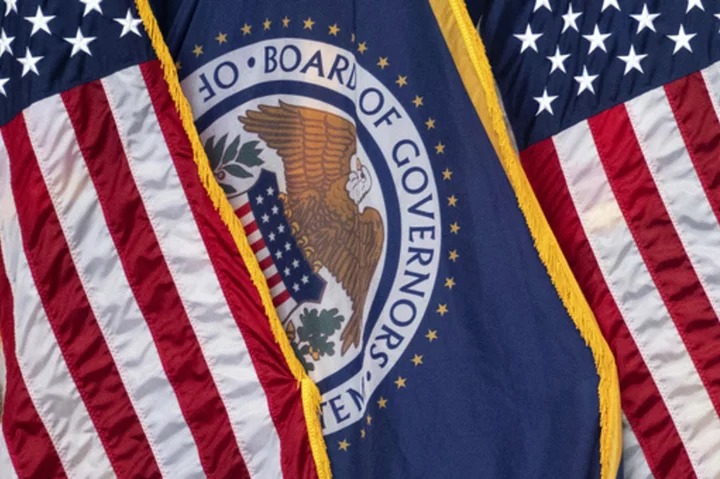WASHINGTON (AP) — Most Federal Reserve officials last month still regarded high inflation as an ongoing threat that could require further interest rate increases, according to the minutes of their July 25-26 meeting released Wednesday.
At the same time, the officials saw “a number of tentative signs that inflation pressures could be abating." It was a mixed view that echoed Chair Jerome Powell's noncommittal stance about future rate hikes at a news conference after the meeting.
According to the minutes, the Fed's policymakers also felt that despite signs of progress on inflation, it remained well above their 2% target. They “would need to see more data ... to be confident that inflation pressures were abating” and on track to return to their target.
At the meeting, the Fed decided to raise its benchmark rate for the 11th time in 17 months in its ongoing drive to curb inflation. But in a statement after the meeting, it provided little guidance about when — or whether — it might raise rates again.
Most investors and economists have said they believe July's rate hike will be the last. Earlier this week, economists at Goldman Sachs projected that the Fed will actually start to cut rates by the middle of next year.
Since last month's Fed meeting, more data has pointed in the direction of a “soft landing,” in which the economy would slow enough to reduce inflation toward the central bank’s 2% target without falling into a deep recession. The Fed has raised its key rate to a 22-year high of about 5.4%.
Inflation has cooled further, according to the latest readings of “core” prices, a closely watched category that excludes volatile food and energy costs. Core prices rose 4.7% in July a year earlier, the smallest such increase since October 2021. Fed officials track core prices, which they believe provide a better read on underlying inflation.
Overall consumer prices rose 3.2% in July compared with a year earlier, above the previous month’s pace because of higher gas and food costs. Still, that is far below the peak inflation rate of 9.1% in June 2022.
Yet that progress has been made without the sharp increase in unemployment that many economists had expected would follow the Fed’s sharp series of interest rate hikes, the fastest in four decades.

